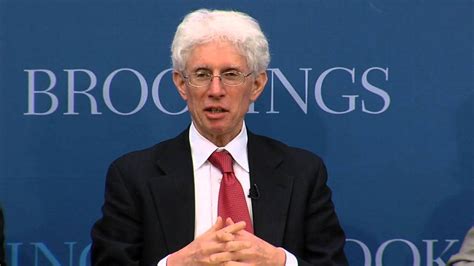A Quote by George Soros
Playing by the rules, one does the best he can, irrespective of the social consequences. Whereas in making the rules, people ought to be concerned with the social consequences and not with their personal interests.
Related Quotes
Many of our students want to do what they have done and that has made them successful thus far in their lives: play by the rules, and do what is expected. But as much social science research and writing by Malcolm Gladwell, among others, make clear, the rules are mostly created by those already in power so obtaining power often entails standing out and breaking rules and social conventions.
The purpose of any military is to kill people and break things. It's not to advance anybody's social agenda. It's not a laboratory for the left's social ideas or playgrounds. It is to kill people and break things, and the second rule is that the aggressor in any conflict sets the rules. And if they violate an existing rule book, then so be it. The aggressor sets the rules, and right now, Putin is setting the rules.
I've argued that many of what philosophers call moral sentiments can be seen in other species. In chimpanzees and other animals, you see examples of sympathy, empathy, reciprocity, a willingness to follow social rules. Dogs are a good example of a species that have and obey social rules; that's why we like them so much, even though they're large carnivores.
Reductionist ideology not only hinders biologists from thinking adequately about the phenomena we wish to understand: it has two important social consequences: it serves to relocate social problems to the individual rather than exploring the societal roots and determinants of a phenomenon; and second, it diverts attention and funding from the social to the molecular.
Man demands truth and fulfills this demand in moral intercourse with other men; this is the basis of all social life. One anticipates the unpleasant consequences of reciprocal lying. From this there arises the duty of truth. We permit epic poets to lie because we expect no detrimental consequences in this case. Thus the lie is permitted where it is considered something pleasant. Assuming that it does no harm, the lie is beautiful and charming.

































